The innovative production method of ecological paper Crush, created from the creative reuse of agro-industrial by-products, enthralled the famous chef Carlo Cracco who chose it to add a green element to his product packaging as well as to the communication material for his restaurant.
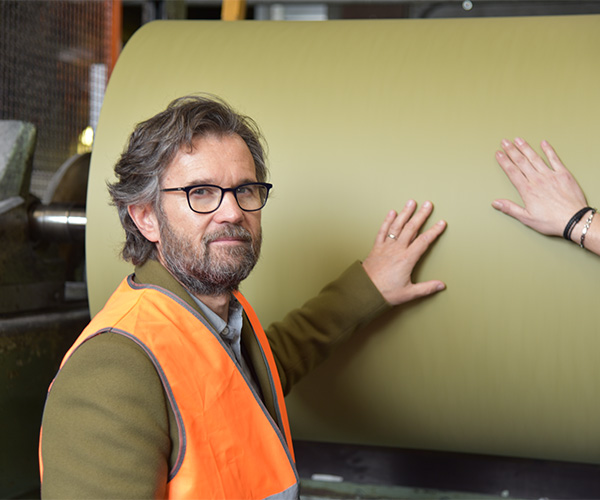
Cracco adds a new element to its restaurant business and its prestigious kitchen in the Galleria Vittorio Emanuele in Milan, thanks to their agricultural estate in Sant’Arcangelo di Romagna used for the self-production and quality control of raw ingredients, also studies solutions to find alternative uses for agro-industrial waste.
The attention to raw material quality and the orientation towards the ethical processes of circular economy led the chef to Favini to create a customized paper for his brand that was produced with 15% of agro-industrial residues in partial substitution of virgin tree cellulose.
Vistamare: Cracco’s farm
On the slopes of Romagna hills, Carlo Cracco, with the close collaboration of his wife and entrepreneur Rosa Fanti, he has cultivated five hectares of vineyards, two with olive trees and six used as orchards of peaches, persimmons and cherries.
Carlo has always been committed to looking for the best raw materials, which come direct from ground to his kitchen table. This is why he believed in the Vistamare project, so called because of the coastal view from the farm, which allows the chef a greater control over the supply chain.
The challenge in the kitchen is increasingly complex; it is no longer enough to cook well, but it becomes a duty to offer the highest quality as well as to communicate messages of environmental respect and the value of recycling through food.
Carlo Cracco’s new approach to cooking comes from a passion to close the loop with the elements, contemplating nature in particular. Going beyond the finished dish, by portraying the whole journey, from soil, to the conception, up to the creation of the recipe, telling the story of the ingredients and the attention to waste reduction with a view to environmental sustainability.
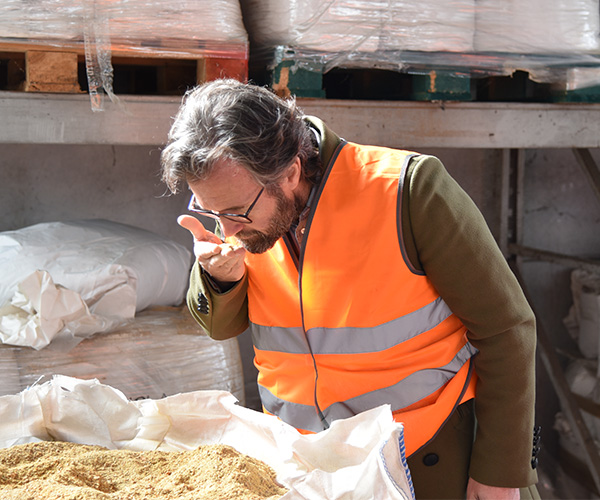
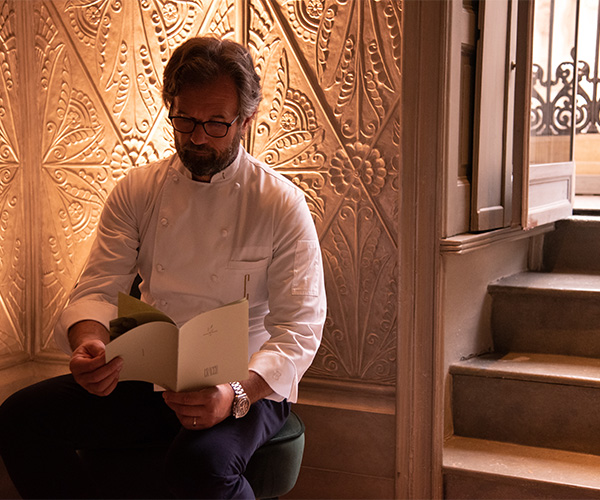
Sustainability, attention to raw materials and waste reduction commitments of Carlo Cracco’s restaurant are told in the editorial project “Quaderno Urbano” printed on Crush Kiwi Favini’s ecological paper.
Crush: the paper from agro-industrial by-products chosen by Cracco
When Carlo Cracco started his career in the kitchen with his teacher Gualtiero Marchesi, it was normal only to use the prime cuts of meat with everything else discarded. Today such criteria are no longer sustainable and the chef believes that waste is the primary enemy of the kitchen.
Right from the start, he thinks about the possible uses of waste from his farm, enhancing them as raw material for other products.
The turning point towards sustainability also coincided with the question of how to reduce the environmental impact of the restaurant and the materials used in it, including paper. Favini proved to be the ideal partner to achieve this goal, thanks to the ecological paper Crush developed according to the logic of circular economy and creative reuse of food waste.
Thanks to Favini’s know-how in the development of ecological papers starting from circular economy processes, Carlo Cracco started a project for the creation of a personalized paper of the Crush range, containing 15% of agro-industrial by-products, such as from olive, grape and orange processing.
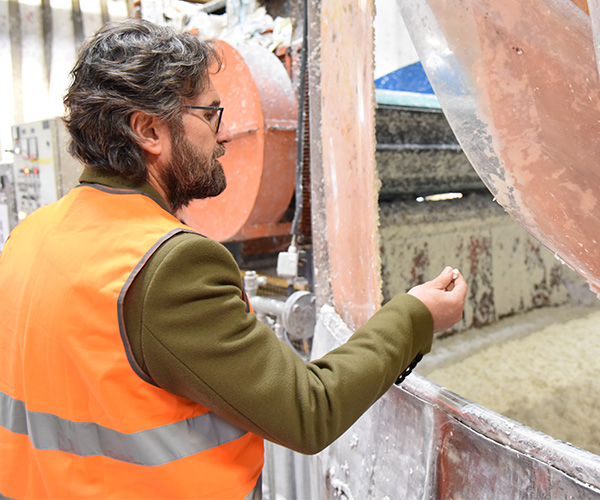
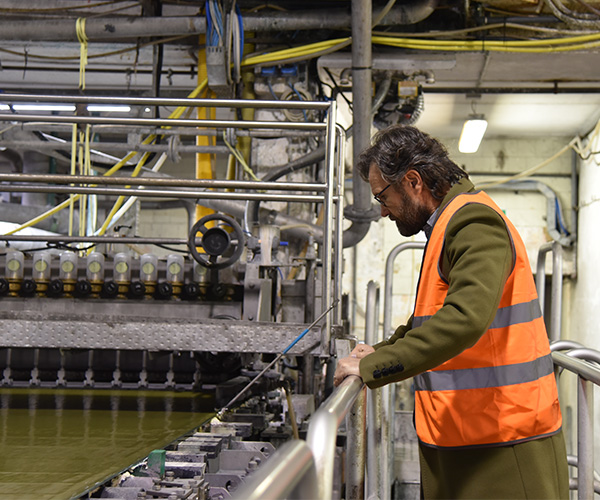
From the pulper, to colouring vat on to the paper machine, Cracco follows step by step the production of the ecological paper Crush, produced by Favini with 15% agro-industrial residues according to the logic of the circular economy.
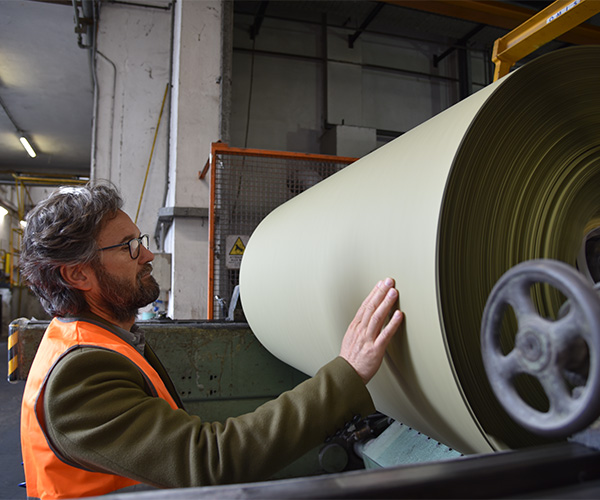
The special production of Favini’s Crush is ready, now the paper produced with 15% of agro-industrial by-products will be transformed into packaging and communication materials for Carlo Cracco’s restaurant and take away.
What happens with the Crush paper?
It is possible to close the circle: the agro-industrial waste from food supply chains is transferred to Favini and micronized at the mill in a process developed by the paper mill itself, and partially replaces tree cellulose for the making of Crush, the ecological paper in accordance to circular process principles.
Subsequently, the sheets of paper are converted in to communication material and packaging that is found at Cracco’s Milanese restaurant or that is received at home when buying from the new luxury take away service; Cracco Express.
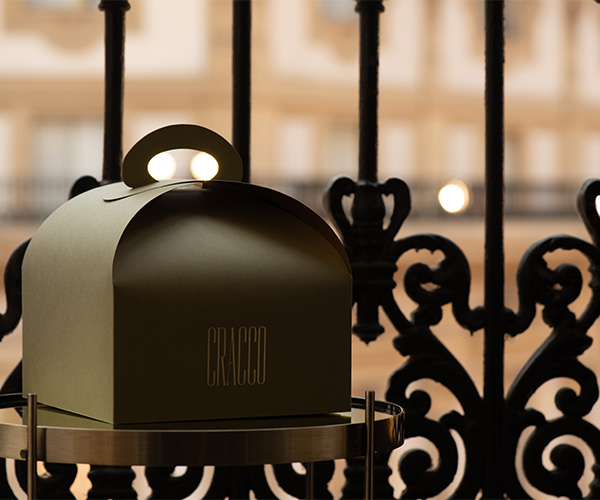
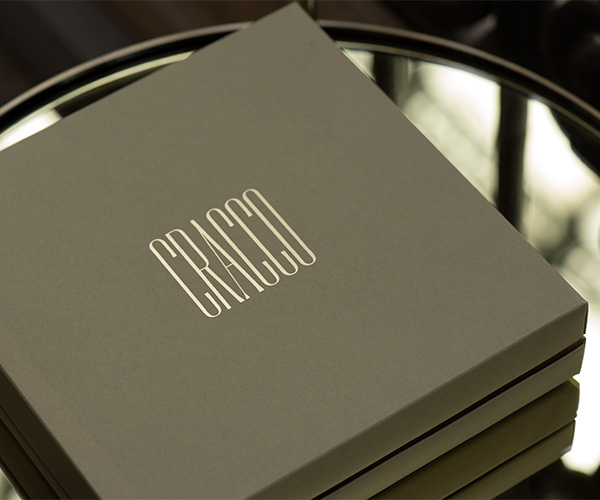
The choice of using Favini’s ecological paper Crush for the paper materials and the product packaging of Cracco’s restaurant is completely in line with the principles of circular economy: Reducing the consumption of natural resources, such as cellulose from trees, and at the same time elevating waste at the end of its life by transforming it into new raw materials for the production of fine paper.
The Cracco Express delivery service uses packaging made with the ecological paper Crush produced by Favini with 15% agro-industrial by-products.
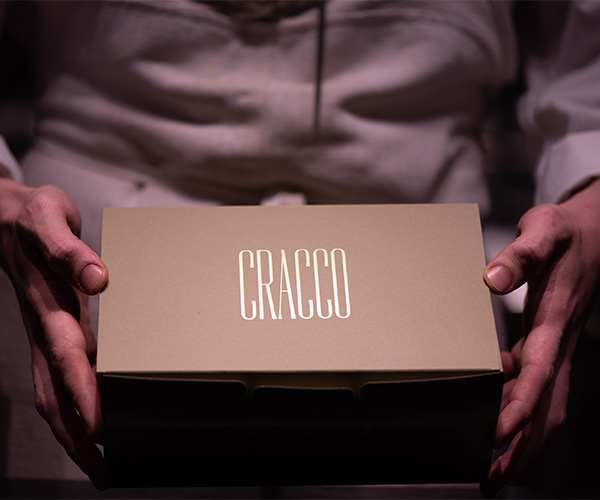
Fight against waste and for a circular economy
Nowadays public figures are not just style icons, they can become examples to follow. Carlo Cracco says he was invited by the school of his sons Pietro and Cesare, to cook and teach the fight against waste. This experience gave him the inspiration to transform the farmhouse in Romagna into a future educational laboratory, providing a place to invite students to explain the importance of recycling and reuse.
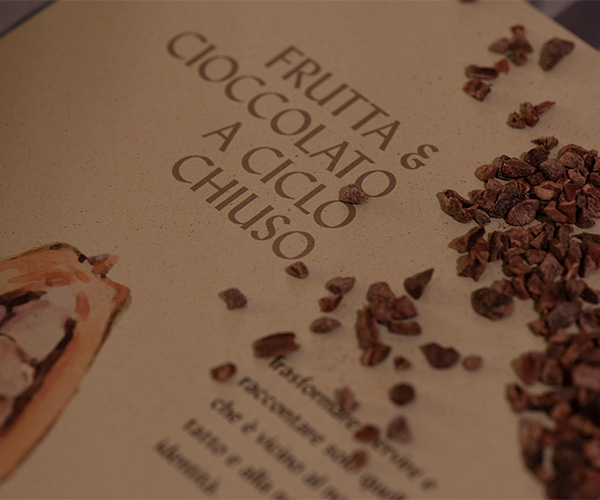
Education to respect the environment, innovation for more sustainable solutions and the drive for a circular economy are conveyed by real case histories such as this project involving chef Cracco and Favini in the reuse of agro-industrial waste for the production of ecological paper for packaging befitting the home delivery service of his delicious haute cuisine dishes.
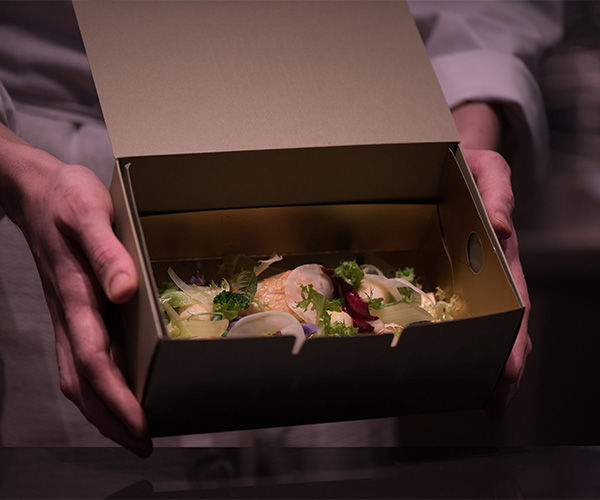
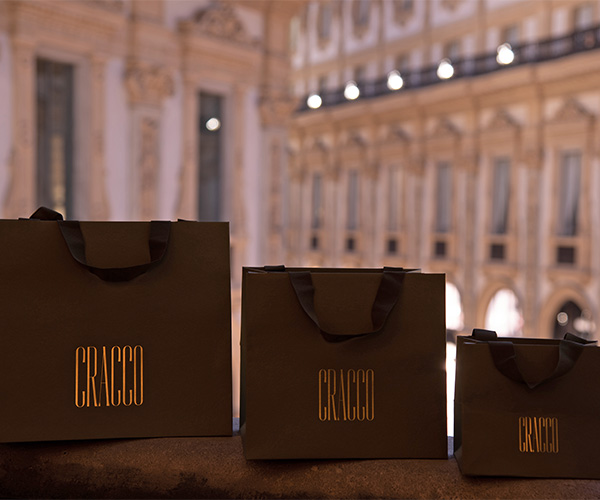
Favini is the ideal partner for the creation of print material consistent with sustainability projects, such as that of the chef. In addition to the ecological paper Crush with 15% agro-industrial residues, the Favini portfolio includes Alga Carta, patented in the 90s to reuse the excess algae from the Venetian Lagoon, Refit with 15% waste from wool and cotton textile processing and Remake with 25% leather by-products.
Furthermore, Favini’s production process aims at constant monitoring and for the reduction of CO2, water and energy emissions, the company’s commitment to sustainability is described in the Sustainability Channel.
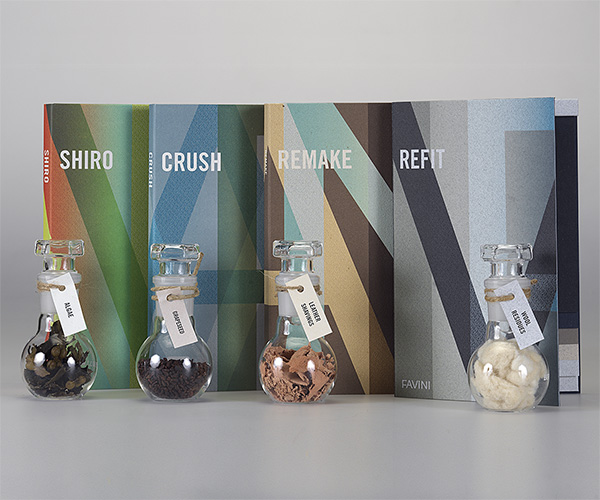
Fonti
Forbes.it – Carlo Cracco “scende in campo” con la moglie Rosa Fanti. Con lei scopriamo il progetto Vistamare
Freshpointmagazine.it – Rosa Fanti: “Carlo Cracco ha scoperto il valore della ciliegia”
Panorama.it – Mentre Cracco sta in cucina, io mi dedico a coltivare i campi


